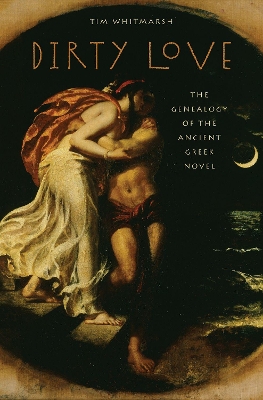Onassis Series in Hellenic Culture
1 total work
Where does the Greek novel come from? This book argues that whereas much of Greek literature was committed to a form of cultural purism, presenting itself as part of a continuous tradition reaching back to founding fathers within the tradition, the novel revelled in cultural hybridity. The earliest Greek novelistic literature combined Greek and non-Greek traditions (or at least affected to combine them: it is often hard to tell how 'authentic' the non-Greek material
is). More than this, however, it also often self-consciously explored its own hybridity by focusing on stories of cultural hybridisation, or what we would now call 'mixed-race' relations. This book is thus not a conventional account of the origins of the Greek novel: it is not an attempt to pinpoint
the moment of invention, and to trace its subsequent development in a straight line. Rather, it makes a virtue of the murkiness, or 'dirtiness', of the origins of the novel: there is no single point of creation, no pure tradition, only transgression, transformation and mess. The novel thus emerges as an outlier within the Greek literary corpus: a form of literature written in Greek, but not always committing to Greek cultural identity. Dirty Love focuses particularly on the
relationship between Persian, Egyptian, Jewish and Greek literature, and covers such texts as Ctesias' Persica, Joseph and Aseneth, the Alexander Romance and the tale of Ninus and Semiramis. It will appeal to those interested not only in Greek literary history, but also in near-eastern and biblical
literature.
is). More than this, however, it also often self-consciously explored its own hybridity by focusing on stories of cultural hybridisation, or what we would now call 'mixed-race' relations. This book is thus not a conventional account of the origins of the Greek novel: it is not an attempt to pinpoint
the moment of invention, and to trace its subsequent development in a straight line. Rather, it makes a virtue of the murkiness, or 'dirtiness', of the origins of the novel: there is no single point of creation, no pure tradition, only transgression, transformation and mess. The novel thus emerges as an outlier within the Greek literary corpus: a form of literature written in Greek, but not always committing to Greek cultural identity. Dirty Love focuses particularly on the
relationship between Persian, Egyptian, Jewish and Greek literature, and covers such texts as Ctesias' Persica, Joseph and Aseneth, the Alexander Romance and the tale of Ninus and Semiramis. It will appeal to those interested not only in Greek literary history, but also in near-eastern and biblical
literature.
